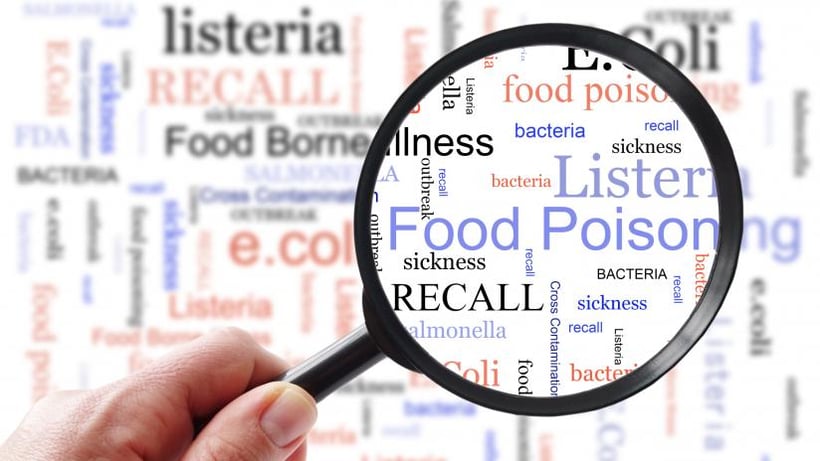
According to data released by Food Standards Australia New Zealand (FSANZ), the presence of undeclared allergens in food items were the cause of almost half of the recalls issued in 2021.
There are two types of recalls that may be issued: trade and consumer. A trade recall encompasses food sold to caterers or wholesalers, but not sold to the general public. A consumer recall applies to foods that are sold to the retail consumer.
In 2021, there were 80 recalls in total (down from 109 in 2020), and 38 of these were allergen-related. The root cause was predominantly packaging errors, followed by supplier verification issues and lastly, accidental cross-contamination.
Additional causes for 2021 recalls included five related to the physical contamination – the presence of foreign objects like metal or plastic – and 19 due to microbial contamination. Multiple recalls associated with ham and pâté caused an increase in reports of Listeria monocytogenes. There were also four recalls related to chemical contaminants.
Food contamination is one of the leading causes of food-borne illness. Learn more about the different types of food contamination in our related blog.
FSANZ also updated their historical trend reporting, providing new information on recalls between 2012 and 2021.
In the past 10 years, there have been an average of 78 recalls per year, up from an average of 76 per year from 2011 to 2020. Allergens were the leading cause of food recalls in the most recent decade of reporting, with 335 (amounting to 43%) issued for that reason. The most common allergen was milk, followed by multiple allergens and then peanuts.
The second-leading driver of recalls between 2012 and 2021 was microbial contamination, causing 201 recalls. Listeria, salmonella and E. coli were the most common offenders.
Physical contamination accounted for 92 recalls over the 10-year period, with plastic and metal the top contaminants. A total of 38 recalls were because of biotoxins – the most common being paralytic shellfish toxin, a naturally-occurring marine biotoxin that shellfish can retain, making people ill if the shellfish is then consumed.
FSANZ credits increased consumer diligence, improved self-monitoring by food businesses, and broader regulatory insight with the reduction in the overall number of recalls in 2021, adding, “Continued advancements in food technology, analytical testing and traceability are also expected to influence the number of food recalls.” Review the complete summary of allergen statistics here.
If you own or work in a food business, food safety training is the best way to educate yourself and your staff on allergen safety, compliance and how to protect your customers by preventing allergy-related incidents. For more information on our courses, contact the Australian Institute of Food Safety today.




